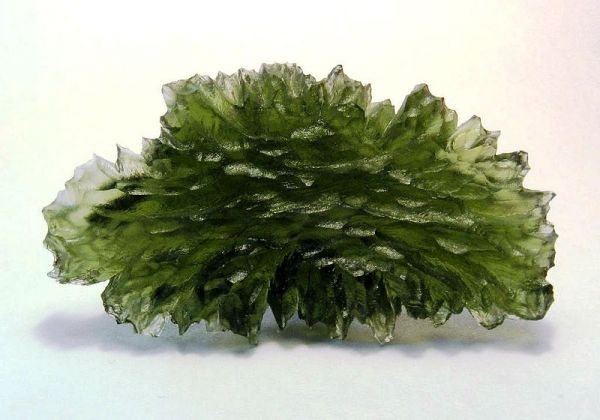 ANCIENT GLASS
ANCIENT GLASS
Glass
has existed for millions of years. Whenever natural events involving
super high temperatures -volcanic activity, lightning strikes, or the
impact of meteorites- cause certain type of rocks to melt, fuse, and
then cool rapidly, glass is formed. Fossil evidence shows that Stone Age
humans used this natural glass to make tools, such as spearheads, and
cutting instruments, as far back as 9,000 years ago. (Better dating
techniques may eventually push that date back much further.) Obsidian,
the shiny black glass formed when lava cools quickly (as when flowing
into water), was widely used by ancient people for these purposes.

After
thousands of years of using naturally-formed glass, humans finally
discovered how to make it -probably by accident. The Roman historian
Pliny wrote in A.D. 77 that Phoenician sailors places "stones of soda
ash" into a fire (presumably to rest their posts on) on a sandy beach.
They later found a "hard smooth stone" in the ashes. That's one possible
scenario, given that sand, soda ash (sodium carbonate) , and heat are
all ingredients for making glass. Another possibility is that potters
inadvertently let some sand drift into their kilns, where it stuck to
the wet clay, accidentally creating a hard, smooth glaze on their
pottery when the baking was done.
 ANCIENT GLASS
ANCIENT GLASS

No comments:
Post a Comment